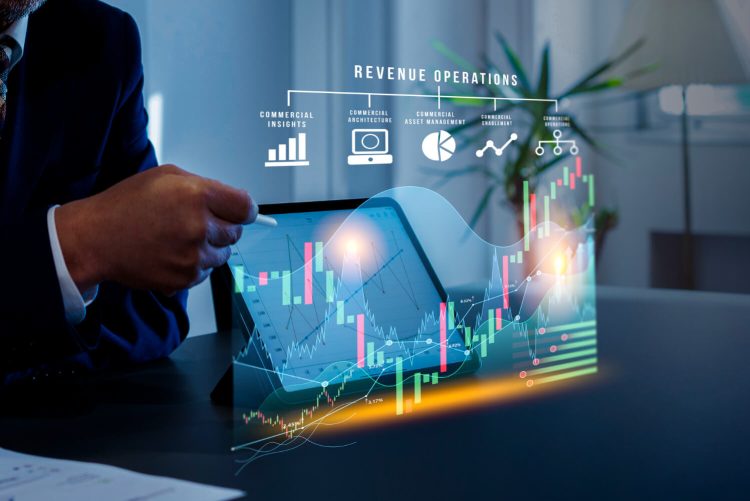In the financial services industry, security and efficiency are paramount. As financial institutions continue to handle increasing amounts of sensitive data, the need to protect against fraud and mitigate risks has never been more crucial. Artificial intelligence (AI) is rapidly transforming the way financial institutions approach risk management and fraud detection, providing new tools to enhance security, streamline operations, and ensure regulatory compliance. This article delves into the role of AI in improving financial security, its application in fraud detection, and the broader impact on operational efficiency within financial services.
The Growing Need for AI in Financial Services
The financial services industry is a primary target for fraud and cyberattacks, and the complexity of modern financial transactions makes it increasingly difficult for human agents to identify and address these threats in real-time. In addition to fraud, financial institutions face a multitude of risks—credit risk, market risk, liquidity risk, and operational risk—each requiring sophisticated tools to monitor and mitigate.
As traditional methods for risk management and fraud detection rely on static rules and manual processes, they struggle to keep up with the speed and scale of modern financial systems. This is where AI comes in. AI systems, particularly machine learning (ML) and deep learning algorithms, can analyze vast amounts of data in real-time, identify patterns, and make predictions based on historical trends. The speed, scalability, and accuracy of AI solutions make them invaluable in the fight against financial fraud and risk.
AI for Risk Management in Financial Services
Effective risk management is a cornerstone of the financial services industry, as institutions must minimize exposure to financial losses while maximizing profitability. AI is transforming how financial institutions manage risk by enabling them to:
1. Predict Market Risks
AI has the ability to process and analyze large amounts of financial data from diverse sources, including stock market trends, economic indicators, and geopolitical events. By identifying patterns and correlations within this data, AI models can predict potential market movements and assist in making data-driven decisions to reduce exposure to market volatility.
For example, hedge funds and investment banks use AI algorithms to create predictive models that forecast stock price fluctuations, helping traders optimize their investment strategies. These models can also be used to predict broader economic shifts, such as recessions or market bubbles, providing financial institutions with the insights needed to adapt their portfolios and strategies accordingly.
2. Credit Risk Assessment
Traditional credit scoring methods, which rely on a narrow set of data (such as credit history and payment behavior), often fail to provide a full picture of a borrower’s financial health. AI enables financial institutions to use a much broader set of data to assess credit risk, including social media activity, transaction history, and even behavioral patterns. By analyzing this vast array of data, AI algorithms can create more accurate credit scoring models and assess the likelihood of loan defaults with greater precision.
Machine learning models, for instance, can learn from historical loan performance data and identify trends that traditional models may miss. As a result, lenders can offer more tailored loan products, improve decision-making, and reduce the risk of defaults.
3. Operational Risk Management
Operational risk, which includes risks arising from internal processes, people, and systems, is another area where AI can make a significant impact. AI can be used to detect operational inefficiencies, identify bottlenecks in processes, and predict potential disruptions in business operations. Predictive analytics can help identify weak points in the operational workflow and recommend measures to mitigate these risks, such as process optimization or system upgrades.
AI tools can also assist in automating compliance tasks, reducing the risk of human error and ensuring adherence to regulations. For example, AI systems can track regulatory changes and automatically update policies or reports to maintain compliance with evolving laws.
AI in Fraud Detection: Detecting and Preventing Financial Crimes
Fraudulent activities, including credit card fraud, identity theft, and money laundering, cost the financial industry billions each year. Detecting and preventing fraud requires advanced systems capable of analyzing vast amounts of transactional data in real-time. AI provides the necessary tools to enhance fraud detection capabilities in the following ways:
1. Real-Time Fraud Detection
AI-driven fraud detection systems use machine learning models to analyze transactions as they occur, identifying suspicious behavior and flagging potentially fraudulent activity in real-time. These systems continuously learn from historical transaction data, improving their ability to detect new types of fraud as they emerge.
For example, credit card companies use AI to monitor transactions for unusual patterns, such as a sudden spike in spending or purchases in locations inconsistent with the cardholder’s normal behavior. If the system detects such anomalies, it can trigger a real-time alert, freezing the account or notifying the customer for further verification. This rapid response helps minimize losses and prevent fraudulent transactions before they occur.
2. Behavioral Analytics
Behavioral analytics involves using AI to track and analyze customer behavior over time to establish a baseline of normal activity. By comparing current transactions with this baseline, AI systems can identify deviations that may indicate fraudulent behavior. For instance, if a customer who typically makes small, local purchases suddenly makes a large international purchase, the AI system can flag this transaction as suspicious.
This approach helps reduce the number of false positives, ensuring that legitimate transactions are not flagged as fraudulent. As AI systems continuously learn and adapt, they become more accurate at identifying genuine threats while reducing the need for manual intervention.

3. Anti-Money Laundering (AML) and Know Your Customer (KYC)
Anti-money laundering (AML) regulations require financial institutions to detect and report suspicious activities that may involve money laundering or terrorist financing. AI is increasingly being used to streamline the AML process, making it more efficient and effective. AI tools can analyze vast amounts of transaction data, looking for patterns or correlations that suggest illegal activity.
Similarly, AI is used in the Know Your Customer (KYC) process to verify customer identities and ensure compliance with regulatory requirements. AI-driven identity verification tools can analyze facial recognition data, scan documents, and cross-reference information from various sources to confirm a customer’s identity. This process helps financial institutions detect and prevent identity theft, ensuring that only legitimate customers are permitted to conduct financial transactions.
4. Network Analysis and Cybersecurity
Financial institutions are frequently targeted by cybercriminals looking to exploit vulnerabilities in their systems. AI plays a crucial role in identifying and mitigating these cyber threats. AI-based cybersecurity systems can detect patterns of malicious behavior in network traffic and quickly isolate threats before they cause harm.
Machine learning models can identify unusual patterns of activity that might indicate a cyberattack, such as the spread of malware or the exfiltration of sensitive data. In addition, AI can automate responses to cyber threats, such as shutting down compromised accounts or alerting security personnel, thereby reducing the impact of attacks on the institution.
Enhancing Operational Efficiency with AI
Beyond risk management and fraud detection, AI is driving operational efficiency across the financial services industry. Automation of routine processes, data-driven decision-making, and improved customer experiences are some of the key benefits AI brings to financial institutions.
1. Automated Processes and Workflow Optimization
AI-driven automation tools help streamline manual processes, reducing the need for human intervention in tasks such as data entry, report generation, and document processing. By automating these tasks, financial institutions can reduce operational costs, minimize human error, and increase overall efficiency.
For example, robotic process automation (RPA) tools, powered by AI, can handle repetitive tasks like reconciling accounts, processing invoices, and managing customer data. This automation frees up employees to focus on higher-value activities, such as strategic decision-making and customer service.
2. Improved Customer Experience
AI-driven chatbots and virtual assistants are enhancing the customer experience in financial services. These AI-powered tools can handle customer inquiries, resolve issues, and provide personalized recommendations 24/7, reducing wait times and improving customer satisfaction.
AI is also enabling more personalized financial services. By analyzing customer data, AI systems can recommend tailored products and services, such as investment opportunities, loan options, or savings plans. This level of personalization enhances the customer experience and helps build long-term customer loyalty.
3. Optimizing Investment Strategies
AI is revolutionizing asset management by providing investors with more accurate predictions and insights. Through the use of AI-powered predictive analytics, asset managers can better understand market trends, optimize investment portfolios, and make data-driven decisions. These tools allow for more informed investment strategies, reducing risk and maximizing returns for clients.
Conclusion
AI is playing a transformative role in the financial services industry, particularly in enhancing risk management, improving fraud detection, and increasing operational efficiency. From real-time fraud detection to predictive risk management, AI-powered solutions are helping financial institutions navigate the complex landscape of modern finance. As AI continues to evolve, its role in ensuring financial security and optimizing business processes will only grow, providing financial institutions with the tools they need to stay ahead in an increasingly competitive and risky market. However, the integration of AI must be done responsibly, ensuring that the benefits are balanced with ethical considerations, data privacy, and regulatory compliance.











































